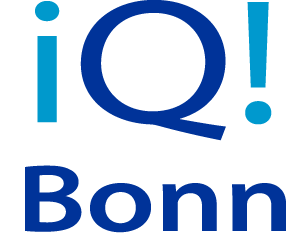Authors: Katja Petereit and Elke Spielmanns-Rome, published in the journal Forschung & Lehre, 3/2010
When foreign students come to Germany, it is not uncommon for them to (have to) hardly speak a word of German during their stay. How do foreign students experience and judge this "concession"?
English is the lingua franca of science and the number one foreign language worldwide, so what could be more natural than to introduce English-language degree courses as part of the internationalisation of German universities? This promoted the attractiveness of Germany as an academic location, which was often only the second choice for highly talented young people from all over the world, despite the recognised excellent education and comparatively low tuition fees. The reason: they shied away from the effort of learning German. Today, many foreign students take the opportunity to complete a Master's degree programme in Germany in an English-speaking environment, even without any knowledge of German. However, this supposed advantage is often perceived as a shortcoming during the course of the degree programme, and the experience of studying in Germany without any significant knowledge of German is perceived as incomplete. This affects the overall impression and satisfaction with the international degree programme. The assumption that a "German-free" degree programme in Germany increases its attractiveness as a place to study was ultimately not confirmed. This has crystallised in more than ten evaluations of English-language Master's degree programmes conducted by the Fachbüro für internationales Bildungsmanagement (FiB) over the past five years. From the large number of evaluation criteria, a particularly striking consensus emerged with regard to the German subject.



